Unhappy Spinsters: The Face of Contemporary Television
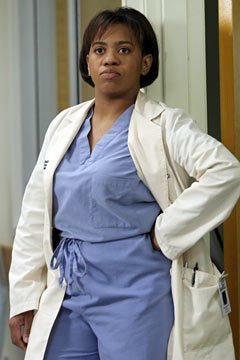
Everyone who knows me knows that I am a television and cinema fanatic. I greatly enjoy watching various forms of cinema and television with a critical eye, dissecting the nuances and plot turns that course through the story. Recently, however, I have been quite disturbed by a phenomenon that I have noticed on primetime television --- what I like to term as the spinster syndrome.
The word spinster is specifically defined as:
A woman who has remained single beyond the conventional age for marrying.
A single woman.
A person whose occupation is spinning.
The word was derived out of the early 19th century practice of donning unmarried women with the undesirable task of spinning cloth in order to earn a living. The word later evolved to describe a woman beyond conventional marrying age who is usually protrayed as bitter, slightly depressed and inspiring discomfort in those around her.
The current television season is full of new and interesting television shows. I was pleased to see Black women in primary or recurring roles on many of the new shows of the season, mainly: The Ghost Whisperer, Night Stalker, Gray's Anatomy, Close to Home, and Everybody Hates Chris. But my joy quickly turned to distaste as I found that all of these women, were to some extent or another, variants of the spinster stereotype. I define the spinster stereotype (which is really just a re-working of the Sapphire) as a woman who has the following characteristics:
- Inspires fear and/or discomfort in those around her.
- Is a bitch. Always seems angered or annoyed about something
- Is either not involved in a relationship or because she is involved in a relationship, inspires sympathy from the audience for her husband/boyfriend/partner because of her treatment of him.
- Usually is in a leadership position
As Black women, we have always had to be strong and independent. But as of late, this seems to be working against us in the American mentality. March 3, 2005, Newsweek published a cover article specifically about Black women, written by Ellis Cose.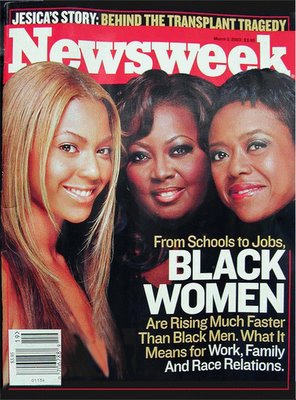
The first thing that I noticed about the article, was that in virtually every photograph, the Black women appeared to be very sad, as if to say sure we're making strides educationally, professionally, and financially but we can't get a man. More recently, a new phenomenon has sparked my interest as well, the fact that in Hollywood film and TV programs, Black women rarely play the partners of Black men. I think this all partly goes back to the spinster stereotype. Black women are seen as emasculators, too independent, too mean to be suitable partners and it shows on contemporary TV programs.
Let's begin with Chandra Wilson and her role as Dr. Miranda Bailey on the popular show Gray's Anatomy. Dr. Miranda Bailey, as of last week's show, was just offered a prestigious fellowship in surgery at Seattle Grace Hospital, as well as 4 others. She's capable, attractive, highly intelligent, and excellent at what she does. But she's a bitch. She yells, she tells people off left and right and for all intents and purposes was considered single. A couple of episodes ago, we, the audience, find out that she indeed is married. But the way we find out is suspect, very suspect. Dr. Bailey is leaving work one night, all dressed up and Dr. Derek Shephard [Patrick Dempsey], one of the lead characters on the show, sees her and inquires where she is going, asks if she has a date. She says yes, in fact, she's married. Dr. Shepard looks at her with a look of shock and sympathetic happiness, a smile crossing over his face. The frame then becomes a two shot as we see the silhouette of Miranda's husband entering the scene and lovingly hugging his wife, we don't actually see her husband, we only see his frame as he hugs her. The camera fades back to Dr. Shephard looking at them with a combination of awe and sympathetic content. Sunday, we find out that Dr. Bailey is pregnant with a son. As she relays this to her superior with annoyance and piturbance, she screams "From the start, men just suck the life out of ya!".
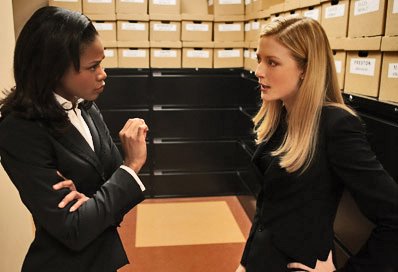
Kimberly Elise is a woman on the rise. Lauded by two of the most popular Black figures in media, Oprah and Denzel, as the best actress of her generation, she is one of the regulars on the new show Close to Home. Elise plays hard-edged District Attorney Maureen Scofield who has purposefully made the decision to forgo a husband and children for a career. The show's lead character Annabeth Chase [played by Jennifer Finnigan] chose to pursue both career and family, having just returned back to work from maternity leave. The first episode featured a conflict between Scofield and Chase. Elise's character resented the time that Annabeth took off of work for maternity leave. Maureen is Annabeth's foil. She, like Dr. Bailey, is attractive, intelligent, and in a leadership position on the show but she's also very bitter, mean, and judgmental, especially towards Annabeth and her decision to have a family and a career.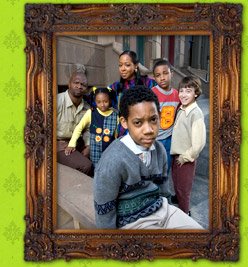
I was very excited to see the premiere of Everybody Hates Chris, based on the 1980s adolescence of "the funniest man in America" Chris Rock. Tichina Arnold, best known for her role as Pamela "Pam" James on the 90s sitcom Martin, plays Chris's mother. I was overjoyed to see "Pam" on TV again. I think Tichina is a good actress, often underrated but again she is a spinster. This time, she is married to Julius who plays Chris's father. Julius is a good man, he works several jobs to provide for his family, comes home at night like a good man should and is a wonderful role model to his kids. So why is Tichina's character Rochelle running around like a banshee screaming at this man every other episode??? The two episodes I am thinking of in particular include the one where Julius was laid off of his job because of a strike and took over household duties while Rochelle went to work. She becomes increasingly jealous of Julius when she realizes that he cleans the house better, cooks better and over all runs a better home than she does. She becomes very passive- aggressive and in an attempt to make her feel better, Julius orders the kids to mess up the house and show distaste for his cooking. In last week's episode, Julius and Rochelle go to buy a TV. Now Julius is infamous on the show for being cheap but with good reason; money is tight and he does not want to be bogged down by the trappings of credit. Rochelle, on the other hand, lives on credit and Julius is consistently trying to pay down the credit that she accumulates. The episode shows Rochelle trying to weasel Julius into buying an expensive TV on credit with a very high interest rate. Rochelle 's character is loud and abrasive with a screech in her yell and its obvious that seven year old Tonya is a seven year old spinster in training and the man she abuses is her older brother Chris. Tonya makes Chris's life even harder with her attitude, need to get him in trouble and overall annoyance. She's proabably my least favorite character on the show and one of Chris's most consistent nemeses.
Both Gabrielle Union and Aisha Tyler star in two new shows, Night Stalker and The Ghost Whisperer respectively. Both women are gorgeous, successful and play foils to the title characters. Both women are unattached and either involved in their work (Union) or involved in the life of the title star (Tyler).
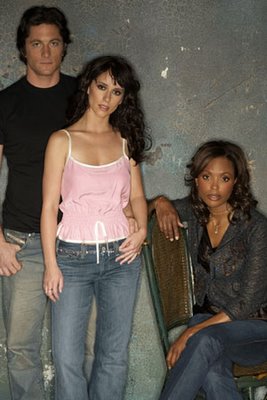
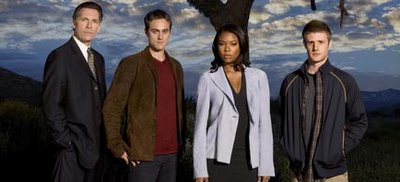
This spinster image as it relays to Black women is just an extention of the Sapphire image. These images of Black women further articulate why Black women make undesirable partners: they're mean, bossy, bitter, too indepdendent, and emasculating. In contemporary cinema and TV, Black men are no longer partnering with Black women. The message of black women being single women in perpetuity is virtually articulated through every media venue imaginable: magazines, TV, advertisements, books, cinema, etc. We're single because we're bitter and when we do get men we turn into banshees who berate them, even when they are good to us. This "banshee spinster" is probably the most pervasive image of Black women in contemporary cinema. Its obvious that noticeable strides are being made for Black men in film and TV. Denzel, then Jamie and Morgan winning Oscars, with Don Cheadle having a nomination but these strides do not include Black women. Black women are often locked in roles where we are shown as unsympathetic and one/two dimensional. Strides need to be made where Black women can be portrayed in more three dimensional and all around better roles. Recently, I heard of a feud between Charlize Theron and Halle Berry. Charlize was apprarently quoted as saying "Note to self. Do not become Halle Berry", in reference to the fact that after Halle's Oscar win, she has not done any filmic projects of worth. Charlize could probably not even imagine in her white world that Black women in Hollywood are lucky if they get one good role much less a bevy of them. Who's responsibility is it to challenge the images that are being presented about us to the world? What should/ can we do about it?

Invidious: adj. Tending to rouse ill will, animosity, or resentment: invidious accusations;
Containing or implying a slight; discriminatory: invidious distinctions; Envious.
"I have come to tell you you are beautiful. I believe you are beautiful, But that it not the issue. The issue is they want you dead"---Nicolas Guillen
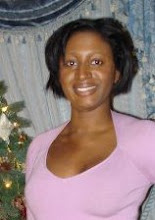

0 Comments:
Enregistrer un commentaire
<< Home